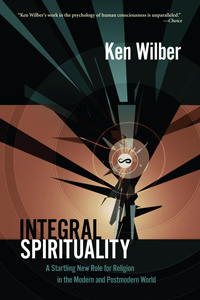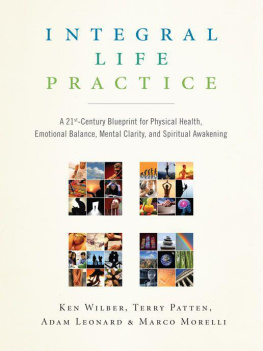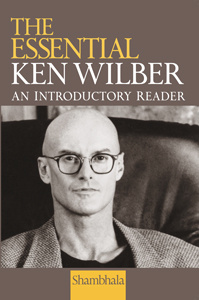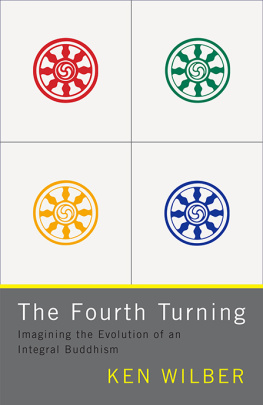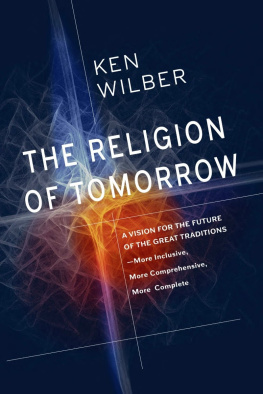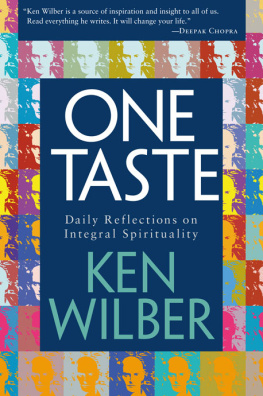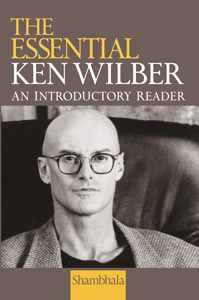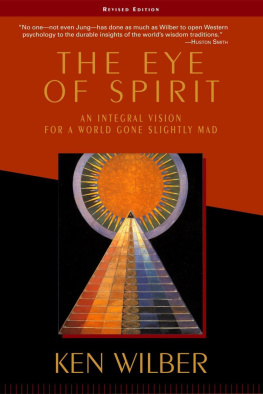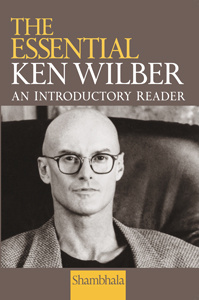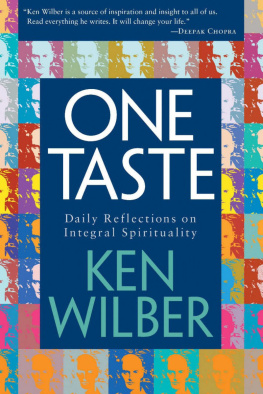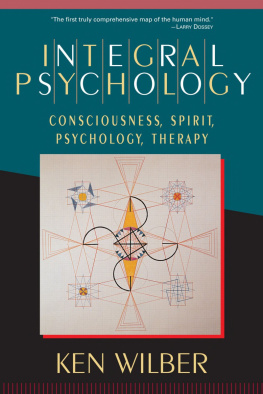A Sociable God is a thought-provoking book that has the potential to stimulate intense discussion about Wilbers theory and transpersonal psychology in general.
Contemporary Psychology: American Psychological Association Review of Books
A concise, scholarly work.
Branches of Light
I use Ken Wilbers approach all the time. I think its the best map of reality we have.
Father Thomas Keating, author of Open Mind, Open Heart
ABOUT THE BOOK
In one of the first attempts to bring an integral dimension to sociology, Ken Wilber introduces a system of reliable methods by which to make testable judgments of the authenticity of any religious movement. A Sociable God is a concise work based on Wilbers spectrum of consciousness theory, which views individual and cultural development as an evolutionary continuum. Here he focuses primarily on worldviews (archaic, magic, mythic, mental, psychic, subtle, causal, nondual) and evaluates various cultural and religious movements on a scale ranging from egocentric to ethnocentric to worldcentric to Kosmic. By using this integral view, Wilber hopes, society would be able to discriminate between dangerous cults and authentic spiritual paths. In addition, he points out why these distinctions are crucial in understanding spiritual experiences and altered states of consciousness.
In a lengthy new introduction, the author brings the reader up to date on his latest integral thinking and concludes that, for the succinct and elegant way it argues for a sociology of depth, A Sociable God remains a clarion call for a greater sociology.
KEN WILBER is the author of over twenty books. He is the founder of Integral Institute, a think-tank for studying integral theory and practice, with outreach through local and online communities such as Integral Education Network, Integral Training, and Integral Spiritual Center.
Sign up to learn more about our books and receive special offers from Shambhala Publications.

Or visit us online to sign up at shambhala.com/eshambhala.

SHAMBHALA PUBLICATIONS, INC.
Horticultural Hall
300 Massachusetts Avenue
Boston, Massachusetts 02115
www.shambhala.com
1983, 2005 by Ken Wilber
All rights reserved. No part of this book may be reproduced in any form or by any means, electronic or mechanical, including photocopying, recording, or by any information storage and retrieval system, without permission in writing from the publisher.
Library of Congress Cataloging in Publication Data
Wilber, Ken.
A sociable God.
p. m.
Reprint. Originally published: New York: New Press, 1983
eISBN 978-0-8348-2294-8
ISBN 0-394-72692-8 (pbk.)
ISBN 1-59030-224-9 (pbk. reissue: alk. paper)
1. Religion and sociology. 2. Psychology, Religious. I. Title. II. Series.
BL60.W53 1984 306.684-5499
Contents
O UR RELIGIONS, our Gods, and our selves may not be quite what we thought. That of course is nothing new. Indeed history can be read as an expression of their progressive evolution, as Ken Wilber has elegantly done in Up from Eden. For religion has been the driving force behind a vast range of behavior, calling forth the highest expressions of human nature and providing excuses for the lowest. Whole cultures have lived, killed, and died for their beliefs. Small wonder then that religion has been one of the central interests of psychology, sociology, and anthropology.
Throughout most of Western history religion was preeminent in defining our reality, and woe to the individual who suggested other views or even other methods of discovering truth (e.g., Galileo). Yet recent history, as if in recompense, has not been kind to religion; it has steadily lost ground to science and rationalism as the major purveyors of reality. Indeed, from the rational perspective, religion is frequently seen as a relic of prescientific thinking, an unfortunate carryover from less sophisticated times. God, if not dead, is at least moribund, surviving only through the unrequited longings of the psychologically immature.
Yet in recent years God has been staging a dramatic comeback, not only in traditional guise but in a full range of diverse forms, Eastern and Western, exoteric and esoteric, fundamentalist and gnostic. Christianity has seen both a fundamentalist revival and the reappearance of contemplative-mystical approaches. In addition, there has been an unprecedented influx of non-Western religions and disciplinesyoga, Zen, TM, and all. Some of these differ so fundamentally from our traditional beliefs and practices as to call into question some of our most basic assumptions about the very nature of religion itself. Buddhism, for example, posits no supreme being or God and centers around a rigorous program of mental training explicitly aimed at controlled psychological processes and states of consciousness. On the morbid side, there is also no end of religious pathology; cults, Jonestown, and Moonies have become household terms.
Small wonder then that the study of religion, in any of its forms, has assumed new importance for both psychology and sociology. Sociologists have been particularly active in studying the new religions and in attempting to connect their emergence with larger social patterns and possible pathologies. They have therefore tended to link religious motivation to inadequacies at the social level, and immaturities at the psychological. And of course they are often correct since there is no shortage of evidence that religious immaturity and pathology reflect their psychological counterparts.
And yet the nagging question remains, Could we be missing something? Is this really all there is to religion? After all, the great saints and sages, Buddha, Christ, Lao Tzu, Shankara, Aurobindo, and others have been said to represent some of the highest levels of human development and to have had the greatest impact on human history. So at least said Toynbee, Tolstoy, Bergson, James, Schopenhauer, Nietzsche, and Maslow, among others. Thus we may ask, Are our guiding sociological assumptions, theories, and methodologies adequate to identify not just immaturity and pathology but also the heights of human experience and development that certain of the great religions claim are both possible and achievable through training?
It is the goal of this book to ensure that these heights are indeed identifiable, and it takes its psychological framework from recent developments in what has come to be known as transpersonal psychology.
The last two decades of psychological research have seen a dramatic surge of interest in areas such as the nature of consciousness and consciousness-modifying technologies, self-regulation of psychophysiological processes, and nonWestern psychologies. The general trend has been toward the recognition that there exist states of consciousness, levels of psychological maturity, and degrees of voluntary control beyond those formerly thought to define the human potential. Humanistic psychology first emerged in an effort to focus attention on these areas; transpersonal psychology followed when even the humanistic model proved inadequate to encompass the full range of phenomena being studied. The term transpersonal was chosen to encompass those experiences and states in which the sense of awareness and identity apparently went beyond (trans) traditional personality and ego.
In the West they were commonly called peak experiences and were initially assumed to occur only rarely and involuntarily. However, certain Eastern psychologies and religious disciplines were subsequently found to contain not only detailed descriptions of such states but also instructions and technologies for attaining them at will. Suddenly, and with no small surprise to Western psychologists, it began to become apparent that the esoteric core of certain of the great religions, Eastern and Western, which had formerly seemed nonsensical or even pathological, could be understood as technologies for the voluntary control of psychological processes and consciousness. To take but one specific example, meditation could now be seen as an attentional training strategy rather than as a regressive and autistic escape from the world, and this new interpretation now has significant support from empirical research.
Next page
